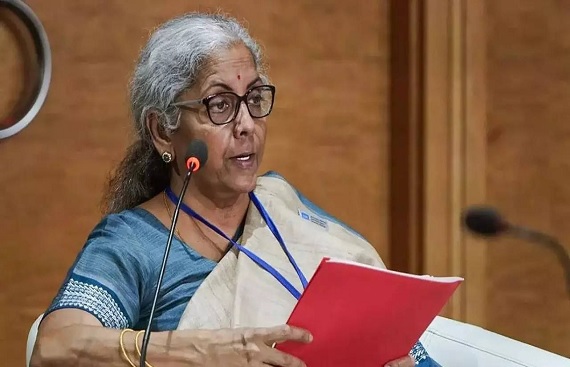Budget 2024: Pharma and Health Sectors' Expectations in Interim Budget
By
siliconindia | Tuesday, 30 January 2024, 12:30:50 PM IST

As the eagerly awaited day of February 1 approaches, when Finance Minister Nirmala Sitharaman unveils Budget 2024, the pharmaceutical and healthcare sectors are outlining their expectations. Their demands encompass innovations in healthcare and pharmaceuticals, reforms in health insurance, enhancements to healthcare infrastructure in rural India, relaxation of import restrictions, and a heightened focus on research and development. Dr. Girdhar Gyani, the Founder and Director of the Association of Health Providers (AHPI), emphasized the necessity of augmenting the number of beds to achieve the World Health Organization's benchmark of 3.5 beds per 1,000 population. Gyani stressed the importance of a larger allocation to meet this requirement.
He furthermore stated: "Without having basic health infrastructure, we will not be able to have effective universal health coverage. Rationalizing of reimbursement tariffs under PRADHAN MANTRI JAN AYOG YOJANA needs priority attention to bring tertiary care hospitals under the scheme".
Gyani also emphasized the development of allied health sectors such as pharmaceuticals and medical equipment/devices. Dr. Gyani underscored the importance of attracting technology partners to invest in the sector through collaborative ventures and indigenous research. This includes exploring advancements in technologies like AI, 3D printing, digital and smart hospitals, as well as remote sensing and monitoring gadgets, which are deemed crucial for the current needs of the industry.
Delair director Deepak Pahwa said that to reinforce the pharmaceutical supremacy of the country across the globe, the government should allot over 2.5 percent of the pharmaceutical investment towards boosting the manufacturing capacity of pharmaceutical products. "The budget should be strategically allotted to promote innovation and tailoring manufacturing practices to meet the rising demand projected in the market while being at par with international standards," said Pahwa with equal emphasis on R&D.
Addressing universal healthcare is the primary requirement of the healthcare sector, said Regency Hospital CEO Abhishek Kapoor. "This roadmap should emphasize long-term infrastructure financing, the expansion of medical and nursing colleges, and the implementation of fiscal reforms in the health insurance sector. Recognizing the imperative for a dedicated regulator in the hospital sector, leveraging organizations like the National Accreditation Board for Hospitals & Healthcare Providers (NABH) could streamline compliance and enhance transparency", he said.
Probal Ghosal, Executive Chairman of Ujala Cygnus Group of Hospitals, stressed the importance of raising the health budget allocation to 2.5 percent of the GDP. He highlighted the need for streamlining the GST framework, upgrading the training of health professionals, according to infrastructure status to healthcare facilities in Tier 2 and 3 cities to attract private sector investments, and securing low-cost funding and tax benefits. Ghosal also advocated for encouraging private investments in medical colleges by providing land allotments, subsidies, and loan moratoriums. Additionally, he proposed incentives for specialists to undertake duties in Tier 2 and 3 cities.
"We also propose budgetary allocation for primary care, higher tax exemptions, and Primary Health Centre (PHC) expansion via public-private partnerships (PPPs). In digital infrastructure, the integration of government schemes under the National Health Authority is recommended for a unified digital platform, enhancing efficiency and expediting payments for private healthcare providers", said Ghosal. Balasubramanian A, Vice President, TeamLease Services said that the healthcare industry expects an increased allocation of 2.5 percent of GDP for public healthcare, tax benefits like increased deductions for health insurance premiums, price regulation and promotion of generic drugs, and government funding for research for a long-term impact on improving healthcare outcomes.
In the pharmaceutical sector, expediting approvals can accelerate the introduction of new drugs to the market by 10-15 percent. Key demands include providing incentives for research and development, such as tax breaks and financial support, facilitating easier access to imported materials to potentially reduce production costs by 5-10 percent. The sector also calls for a concentrated effort on the manufacturing of Active Pharmaceutical Ingredients (API), promoting increased local value addition and manufacturing within India. Additionally, there is a push for the expansion of high-quality, transformative education and a prioritized emphasis on skill development.
Read More News :
Top Stocks in Focus: Adani Total Gas, Newgen Software, YES Bank, Vodafone Idea and More
Nuclear Power Capacity in India to Hit 22K MW by 2031: NPCIL Chief



.jpg)